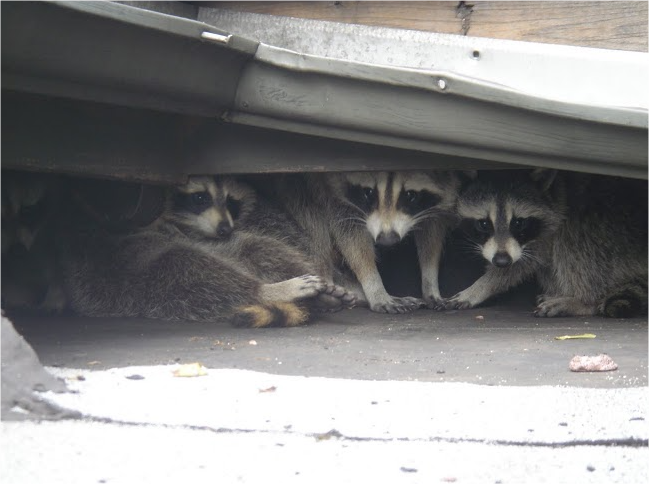Raccoons are common foragers in North America, but their familiarity does not make them welcome on most people’s property. The raccoon has gotten a bad reputation over the years for destructive behavior. As is typical with any rumor mill, it didn’t take long for these cute little scamps to become public enemy number one, with many calling the animals dangerous. Still, any expert in raccoon removal in Niagara will tell you that ferocious encounters with raccoons are rare, so do you need to worry about your pets?
Raccoons and Pet Safety
Raccoons are not usually aggressive, but they are defensive. While the animal may not go after your pet, it will defend itself against an attack. Many people believe that a raccoon will instigate an altercation with a cat, but it is usually the opposite. Cats are naturally curious and defensive of their territory. If a raccoon enters a cat’s space, it is not uncommon for the cat to growl, spit, and scratch. If a raccoon does not have an easy escape, it may bite or defend itself aggressively, potentially killing a pet feline; although, such altercations are not expected or frequent.
That said, there are a few possible reasons a raccoon might attack a cat. First, the animal has babies it is trying to protect. Second, it is hungry with few options for food other than a small cat or kittens. Finally, the animal is rabid, and not in its right mind.
Raccoons and Disease
The more prominent threat to a cat is the risk of disease or infection from a wild raccoon bite or scratch. Raccoons can carry rabies, roundworm, feline distemper, and other infectious diseases. The goal, then, is to keep your pets away from wildlife, ensuring they stay happy, healthy, and safe.
Raccoons and Pet Food
Raccoons are not picky eaters; that is why you will often find them rummaging through the trash. Cat food, dog food, and other pet food products are appetizing for a forager like a raccoon. You should keep pet food inside to reduce the chances of encouraging wildlife visits to the food bowl. You might also want to secure any pet doors because many people have been shocked to find a 20 lb visitor in their kitchens at breakfast.
Racoon Prevention
Keeping pets inside at night and ensuring that their food is kept indoors at all times are both great ways to limit the chances of your pet encountering a raccoon on your property, but these solutions are only a small piece of the prevention puzzle. There are at least three other steps you can take to protect your pet and your property.
1. Secure Garbage
The best thing to do is to use garbage cans with secure and tight-fitting lids. You do not want raccoons finding an easy snack because you went with the inexpensive garbage cans without tops. You might also consider storing your garbage cans in the garage or a storage shed until garbage day, further limiting access.
2. Eliminate Shelters
Inspect your property for any potential hiding or nesting sites. Is the underside of your deck open? Does your shed have a broken window or loose latch? You want to block any potential entry points on your property, ensuring that a raccoon does not find a comfortable space to call home.
3. Contact a Wildlife Specialist
If you believe you have a raccoon or multiple raccoons on your property, contact an expert in raccoon removal in Niagara. They will assess your property and identify any possible weaknesses. They will also come up with a game plan for controlling and possibly removing the animals.
Raccoons are not usually aggressive, but they will defend themselves, meaning that you need to take steps to protect your pets. Contact Skedaddle Humane Wildlife Control to schedule a property assessment and learn about your next steps.



